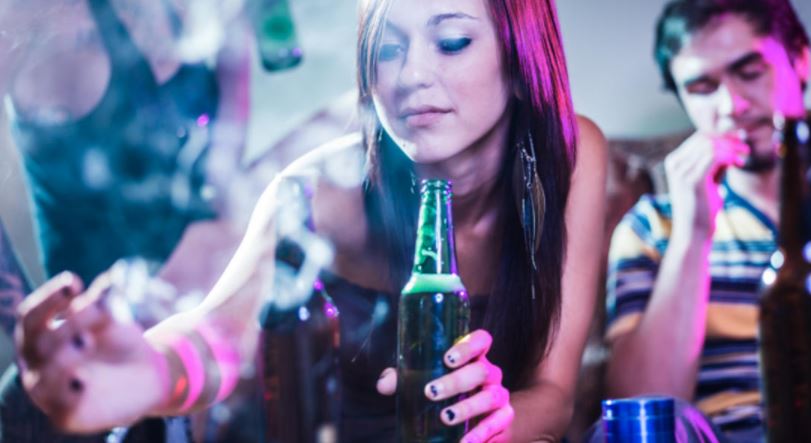Here are 13 Reasons Why your teen could be abusing alcohol. Finding the root of the problem gives you a better chance of addressing it.
“Oh to be young and wild and free…” You may wistfully look back to the times when you were in your teens and had no care in the world. Being a teen indeed has its perks, right?

Despite it being the most carefree, the teenage years are also considered the most tumultuous years of a person’s life. In fact, it could be the most difficult. Your problems–fights with friends, breakups, peer pressure–all these and more seemed to be the end-all and be-all of your existence.
Because of this high-stress stage, with all the changes within the body and in the environment, it is also during this stage that teens are most vulnerable. Teens are navigating untested waters as they slowly experience little freedoms and opportunities to find their identity.
These said, teens tend to be drawn towards trying new things. They may dabble into music, the arts, and even get involved with new friends–as well as get introduced to alcohol. And because they are young and inexperienced, they’re unprepared for the consequences.
So why do they get into drinking alcohol anyway? Let’s find out.
1. Peer pressure. Peer pressure is a powerful influence in a teen. At a time when they want to figure out who and what they are, they also want to belong. And they can seek out friends who may potentially bring bad influence.
2. “I’m not a kid anymore.” They may feel like they have to act like the way grownups do and try to drink. Drinking can be their way to show that they’re not kids anymore.
3. Curiosity. Teens are naturally curious, and if they see other kids do something, they would definitely try it too.
4. Boredom and idleness. A restless teen can easily get bored. So, when kids get together and they don’t have anything better to do, they’d tend to look at activities like drinking to pass the time.
5. Rebellion. Teens want to assert their individuality and they can’t be stopped. In fact, the more grownups try to stop them, the more they’d persist.
6. Escape. Teens struggle with a surge of emotions as they take on the many changes that they experience inside them and around them. When they get overwhelmed, or if they don’t want what’s happening, they turn to alcohol to “get away from it all.”
7. Self-medication. Many teens suffer bullying, anxiety, depression,and a range of other conditions as they navigate the scary and unexpected emotional terrains of being a teenager. This makes them resort to drinking alcohol and getting drunk as a way to cope with their problems.
8. Inexperience. They don’t have experience to teach them what’s good for them, so they get into all sorts of things, which includes intoxication.
9. Ignorance. Generally, teens have a hard time knowing what works for them and what doesn’t. They have no idea what lies ahead when they choose a certain path. This is true also when it comes to teenage drinking, where they don’t know the consequences of their actions.
10. Impulsivity. Raging hormones, fast life, ignorance, lack of foresight. All these and more are at play as teens quickly make decisions based on their impulses. They have no idea what the consequences of their actions are, and they think they hurt no one else by their actions, so they don’t think twice about their decisions.
11. It’s fun. Of course, they don’t want to be the wallflower in the crowd, or to be called a “Debbie Downer” by their friends if they decline a drink. After all, for them, getting drunk seems fun.
12. It’s exciting. The thrill of sneaking liquor into their hideouts, cutting classes to get drunk, and doing all sorts of “wrong” things give teens such a big thrill. The idea of getting caught–or not getting caught– gives them exhilaration and motivation.
13. Developed addiction. It wouldn’t be a surprise if kids get addicted to alcohol. While they don’t have any intention to be addicted when they started, the danger is still there. In fact, around the world, many teens get addicted to alcohol at a very young age–and this gets carried over well into adulthood and for the rest of their lives.
As a parent, you should talk to your teen TODAY about the dangers of alcohol. Instead of lecturing, preaching, and blaming, consider positive criticism and open, two-way conversations. Make them understand that you’re doing this out of love and concern. Don’t forget to also give them time to talk and share about their own fears and problems. This gives you insight into how vulnerable and how troubled your teen could be.
At Bridges of Hope, we work closely with parents to help their teenage sons and daughters find a shot at redemption, recovery, and a healthier life ahead. Call or text us TODAY at 09175098826.

Recent Comments